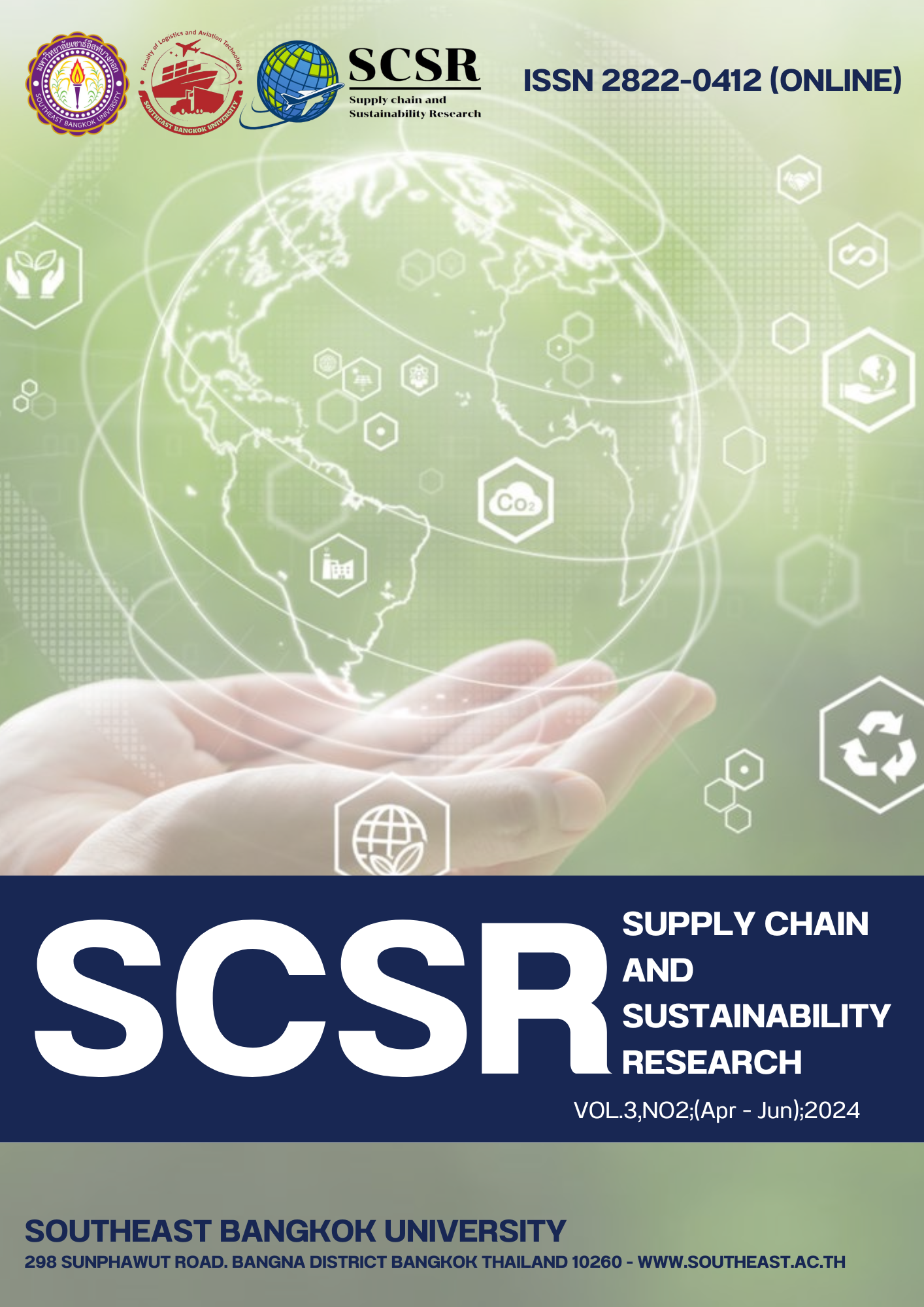The contribution of the banking and insurance industry to climate change: a case study of carbon-neutral commodities
Main Article Content
บทคัดย่อ
This article reviews the important international efforts to address climate change and protect biodiversity, with a particular focus on the key role played by the banking and insurance industry in this global challenge. From the Kyoto Protocol to the Paris Agreement, and including related initiatives such as ESG (Environmental, Social, and Governance) and TCFD (Task Force on Climate-related Financial Disclosures), the international community is consistently striving to advance carbon emissions management and climate risk mitigation. In this context, the banking and insurance industry is transforming from traditional financial support to a promoter of sustainable finance, committed to providing financial services in line with the Sustainable Development Goals of United Nations.
This paper further analyzes the specific actions of the insurance industry in responding to climate change. In addition to its investment efforts, the insurance industry is actually involved in carbon management and decarbonization through innovative products and services, such as solar insurance and carbon neutral commodities. In particular, this paper introduces in detail the design and implementation of a new type of insurance product, an indemnity insurance to cover the cost of accidental greenhouse gas emissions emphasizing its importance in compensating for losses caused by accidently increased carbon emissions and preventing the risk of carbon leakage.
Finally, this paper proposes the potential contribution of the insurance industry in promoting green procurement, emphasizing its role in promoting the greening of supply chains in the future. Overall, this paper calls for more insurance institutions to join the ranks of climate change response and points out the positive role and potential contribution that the insurance industry can play in this process.
Article Details

อนุญาตภายใต้เงื่อนไข Creative Commons Attribution-NonCommercial-NoDerivatives 4.0 International License.
บทความนี้ได้รับการเผยแพร่ภายใต้สัญญาอนุญาต Creative Commons Attribution-NonCommercial-NoDerivatives 4.0 International (CC BY-NC-ND 4.0) ซึ่งอนุญาตให้ผู้อื่นสามารถแชร์บทความได้โดยให้เครดิตผู้เขียนและห้ามนำไปใช้เพื่อการค้าหรือดัดแปลง หากต้องการใช้งานซ้ำในลักษณะอื่น ๆ หรือการเผยแพร่ซ้ำ จำเป็นต้องได้รับอนุญาตจากวารสารเอกสารอ้างอิง
Addison, P. F., Bull, J. W., & Milner‐Gulland, E. J. (2019). Using conservation science to advance corporate biodiversity accountability. Conservation Biology, 33(2), 307-318.
Ascui, F., & Lovell, H. (2012). Carbon accounting and the construction of competence. Journal of Cleaner Production, 36, 48-59.
Board, F. S. (2017). Recommendations of the task force on climate-related financial disclosures.
Burian, M. (2006). The Clean Development Mechanism, sustainable development and its assessment (No. 264). HWWA-Report.
Conley, J. M., & Williams, C. A. (2011). Global banks as global sustainability regulators? The equator principles. Law & Policy, 33(4), 542-575.
Cort, T., Park, S., & Nascimento, D. (2022). Disclosure of Corporate Risk from Socio-Economic Inequality. Available at SSRN 4018590.
Gond, J. P., & Piani, V. (2013). Enabling institutional investors’ collective action: The role of the principles for responsible investment initiative. Business & Society, 52(1), 64-104.
Griffiths, P. D. R., & Griffiths, P. D. R. (2021). To be or not to be: Principles for responsible banking. Corporate Governance in the Knowledge Economy. Lessons from Case Studies in the Finance Sector, 181-210.
Kim, R., & Pierce, B. C. (2018). Carbon offsets: An overview for scientific societies. UPenn CIS, June, 24.
Kim, Y., Tanaka, K., & Matsuoka, S. (2020). Environmental and economic effectiveness of the Kyoto Protocol. Plos one, 15(7), e0236299.
Liu, W., McKibbin, W. J., Morris, A. C., & Wilcoxen, P. J. (2020). Global economic and environmental outcomes of the Paris Agreement. Energy Economics, 90, 104838.
Schneider, L., & La Hoz Theuer, S. (2019). Environmental integrity of international carbon market mechanisms under the Paris Agreement. Climate Policy, 19(3), 386-400.
Schooley, D. K., & English, D. M. (2015). SASB: A pathway to sustainability reporting in the United States. The CPA journal, 85(4), 22.
Scordis, N. A., Suzawa, Y., Zwick, A., & Ruckner, L. (2014). Principles for sustainable insurance: Risk management and value. Risk Management and Insurance Review, 17(2), 265-276.
Wang, F., Harindintwali, J. D., Yuan, Z., Wang, M., Wang, F., Li, S., ... & Chen, J. M. (2021). Technologies and perspectives for achieving carbon neutrality. The Innovation, 2(4).
Wright, C. (2009). Setting standards for responsible banking: examining the role of the International Finance Corporation in the emergence of the Equator Principles. In International Organizations in Global Environmental Governance (pp. 65-84). Routledge.
Yildirim, S. (2023). Greenwashing: a rapid escape from sustainability or a slow transition? LBS Journal of Management & Research, 21(1), 53-63.
Zhang, Y. J., & Wei, Y. M. (2010). An overview of current research on EU ETS: Evidence from its operating mechanism and economic effect. Applied Energy, 87(6), 1804-1814.


